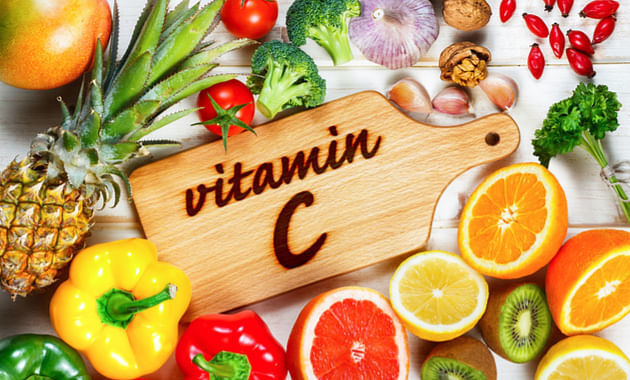
Glucose-6-phosphate dehydrogenase (G6PD) deficiency is a genetic condition that affects the enzyme responsible for protecting red blood cells from oxidative stress. It's essential to understand how high dose vitamin C supplementation interacts with this condition and whether it poses any risks or benefits.
Understanding G6PD Deficiency
G6PD deficiency is a genetic disorder most commonly found in males and certain ethnic groups, such as those of African, Mediterranean, or Southeast Asian descent. Individuals with G6PD deficiency lack sufficient levels of the G6PD enzyme, which helps protect red blood cells from damage caused by oxidative stress.
The Role of Vitamin C and Oxidative Stress
Vitamin C, also known as ascorbic acid, is a potent antioxidant that helps neutralize free radicals and reduce oxidative stress in the body. In individuals without G6PD deficiency, vitamin C is generally well-tolerated and plays a crucial role in supporting immune function, collagen production, and overall health.
High Dose Vitamin C and G6PD Deficiency: Potential Risks
For individuals with G6PD deficiency, the interaction with high dose vitamin C supplementation can be complex and potentially problematic. Here's why:
-
Oxidative Stress: High doses of vitamin C can generate reactive oxygen species (ROS) in certain conditions. In individuals with G6PD deficiency, who already have compromised red blood cell protection against oxidative stress, this can lead to hemolysis (breakdown of red blood cells).
-
G6PD Trigger Foods: Some foods and substances can trigger hemolysis in people with G6PD deficiency. These include fava beans, certain medications (e.g., antimalarials), and potentially high doses of vitamin C.
Understanding Hemolysis in Vitamin C and G6PD
Hemolysis refers to the accelerated breakdown of red blood cells, which can lead to symptoms such as:
- Anemia: Due to decreased red blood cell count.
- Jaundice: Yellowing of the skin and eyes due to increased bilirubin levels.
- Dark Urine: Urine may appear darker due to increased bilirubin excretion.
- Fatigue: Resulting from decreased oxygen-carrying capacity of the blood.
Managing Vitamin C Intake for Individuals with G6PD Deficiency
If you have G6PD deficiency or suspect you might, it's crucial to approach vitamin C supplementation cautiously:
-
Consult Your Healthcare Provider: Before starting any new supplement regimen, especially high dose vitamin C, consult with a healthcare provider familiar with G6PD deficiency.
-
Avoid High Dose Vitamin C: Due to the risk of hemolysis, it's generally recommended that individuals with G6PD deficiency avoid high dose vitamin C supplements. Stick to the recommended dietary intake through natural sources like fruits and vegetables.
-
Monitor Symptoms: If you experience any symptoms of hemolysis after consuming vitamin C or other trigger substances, seek medical attention promptly.
Natural Sources of Vitamin C
While high dose vitamin C supplements may pose risks for individuals with G6PD deficiency, you can still maintain adequate vitamin C levels through dietary sources:
- Citrus Fruits: Oranges, grapefruits, lemons.
- Berries: Strawberries, blueberries, raspberries.
- Bell Peppers: Especially red and yellow peppers.
- Leafy Greens: Spinach, kale, broccoli.
Incorporating these foods into your diet not only provides vitamin C but also other essential nutrients that contribute to overall health.
Conclusion
While vitamin C is generally considered safe and beneficial for most individuals, those with G6PD deficiency need to exercise caution. High doses of vitamin C can potentially trigger hemolysis in individuals with this genetic condition, leading to serious health complications. It's important to consult with a healthcare professional before starting any new supplement regimen and to prioritize a balanced diet rich in natural sources of vitamin C.
In summary, for individuals with G6PD deficiency, avoiding high dose vitamin C supplements is prudent to prevent oxidative stress and potential hemolytic crises. By understanding the interaction between vitamin C and G6PD deficiency, individuals can make informed decisions to support their health effectively.
Dr. Klea Doko
Contact Me


